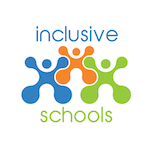Advocacy
We are committed to supporting genuine collaboration and partnership between families and schools. We work with individual families, young people or teachers to ensure their voices are heard and their rights upheld.
Inclusive schools are about moving from a position of asking “Why inclusion?” to asking “How do we successfully include all students?”.
Inclusion
The Melbourne Declaration on Educational Goals for Young Australians declares that ‘all Australian governments and all school sectors must provide all students with access to high-quality schooling that is free from discrimination based on gender, language, sexual orientation, pregnancy, culture, ethnicity, religion, health or disability, socioeconomic background or geographic location’.
All students are entitled to rigorous, relevant and engaging learning programs drawn from a challenging curriculum that addresses their individual learning needs.
The right to an inclusive school
The right to learn and access education opportunities on an equal basis with others is a fundamental human right, but one that many people with disability do not enjoy.
Using the Australian Curriculum to meet the learning needs of all students
Teachers refer to the Australian Curriculum learning area content that aligns with their students’ chronological age as the starting point in planning teaching and learning programs.
What does the legislation mean for schools and teachers?
The Disability Discrimination Act 1992 and the Disability Standards for Education 2005 (the Standards) are intended to give students with disability the same rights as other students, including the right to education and training ‘on the same basis’ as students without disability.

